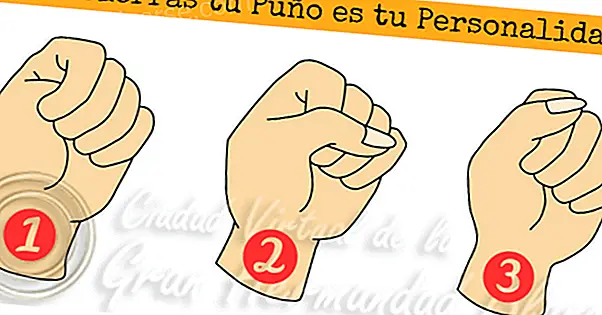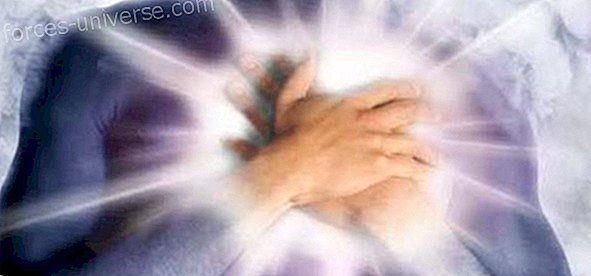This article will consist of unconditional love in the Judeo-Christian tradition, a topic that is not widely spoken and taught in that tradition, so it seems essential to start delving into those teachings that many of us have suckled as boys and never We have never deepened or asked ourselves about it. That is why I bring a keynote lecture by Roberto P rez, a bachelor's degree in theology, who has dedicated himself to studying these issues, possessing knowledge that conveys with great wisdom and simplicity.
It should be clarified that this topic and the message it contains is dedicated not only to people who profess or have professed the Judeo-Christian religion, but to all .
Las bienaventuranzas by Roberto P rez comments by Gisela S.
What is the essence of all Christian revelation?
In the apostolic discourse, which Jesus gives from chapter 5 to 7 of St. Matthew, which is called The Sermon of the Mountain, in that sermon it seems that he is Concentrated by Matthew, he has the key to Christian teaching, everything is there. Then one reads those two chapters and is as teaching the novelty that Christ brings . Now I will explain why it has to do with the mountain or mountain.
So, in what is in chapter 5 to 7 one can say there is the key teaching of the gospel, and of all that is the key to those two chapters tulos, is in the beatitudes . So I hope you enjoy it and let's make it expansive. I hope many people learn it and that we begin to understand more deeply our tradition.
Let's start, thinking this way: to understand well the place occupied by the beatitudes we have to go back to understand the following.
We start from the idea that in Genesis, in the first chapter of Genesis, where the creation story is made, the interesting thing about that story is that when one read carefully what happens is that you always repeat a phrase that says like this and said God and every day of the creation appears and said God . The interesting thing that ten times appears the phrase And God said . It is no accident that the phrase and God said appears ten times. Those ten times make allusion that in the Christian mysticism the Creator, with the ten times he said that, I believe what is called the Natural Order.
In our tradition then, the idea is that in the saying of God, in the creative word, the whole order that will be after where the human being will live is created. It's like he created the house. God creates the natural order that will be the habitat of the human being and that is why the interesting thing is to understand that by creating the Natural Order, that order is what will allow man to be happy.

Taking care of that Order, he takes care of himself. By damaging that Order, it damages itself. And what I say is at the base of the great cultures, especially those from the planet.
Man is not the owner of that Order, it is simply he who has the responsibility of caring for his own good . In addition to the responsibility of doing so for all creatures. This is the mission of the Judeo-Christian tradition.
A God of love that creates a habitat for the human being to be happy and that habitat is what we call Natural Order.
But then he has another moment of the Judeo-Christian revelation in which the human being becomes a people and what he is talking about is the human condition and the human condition having that order does not take care of him and he also creates the damage with his freedom, of that order. Then in the history of the Judeo-Christian revelation, it is said that God intervenes in that history to help the human being resume the path that was being lost.
Then in the exodus, on Mount Sinai, that is where Moses is once again, God will speak to him ten times, and those ten times, they will be the Moral Order . Where, through those ten times he speaks, he gives the commandments, and these are simply actions that the human being must have to avoid moving away from happiness .
And in fact they are very basic commandments, don't do this, don't do this, don't do this. It is like a way to help the human being understand the path to happiness and not fall into the destruction of himself or others . And these ten commandments are like an order, a moral lifeline for the human being to be happy.
What does tradition tell us that after that moment the human being unfortunately stays in shape and loses his spirit?
He stays in compliance and forgets the commitment.
Remember that compliance is always compliance and lie, is to stay in compliance with the rule and forget the commitment to core values.

So in that tradition What happens?
Recurrently men appear who are the prophets who come to remind that people that unfortunately not stay in strict compliance but live from the spirit.
Then the prophets appear announcing the need for the human being to come out of this formal fulfillment . And one of the most important prophets of that tradition is going to be Ezekiel.
The text that I am going to read to you now is always read in the Easter vigil of the Christian tradition.
Then he says so, in the text of chapter 35 of Ezekiel, a New Heart is titled, then God says, I will give you a new heart and put into You, a new spirit, will take away the heart of flesh and put my spirit within you, and will make you walk according to my commandments, observe my laws and put them into practice, I will free you from all your impurities.
This very simple episode is saying that: I gave them the natural order and they destroy it, I give them the moral order and they don't fulfill it, well it is time that with the prophets and so many announcements they can change. I will do something to change your heart.
Then the arrival of Jesus in the Gospel of St. Matthew appears again, the moment where Jesus appears teaching that new way. That new path to human happiness . On that new road, the text of the Beatitudes says, like this: when he went to the crowd he climbed the hill, he sat down and his disciples approached. And taking the word taught them by saying .

Jesus goes up to a place and goes to teach the most important thing, and does not make a harangue simply sits down and starts talking to them . And on the hillside, since it is not a hill, it is just a hillside, sits and speaks to you to try to teach you all that wisdom. The fact that it was a hillside allowed his voice to reach many people. At that moment he is the Teacher who speaks and from the place of mastery he begins by saying the most important thing .
Start dialing, Attention now!
At that moment he is the Teacher who speaks and from the place of mastery he begins by saying the most important thing.
Start dialing, attention now! Nine Beatitudes
Jesus does not come to teach another dogma, he does not come to teach new commandments, he comes to teach something very different . And start talking in an enigmatic way, blessed are these, blessed are those.
And the interesting thing is that the beatitudes are nine . And one would say he was wrong, if the natural order is ten, if the moral order has to do with the ten, obviously this new order, which will be the spiritual order, the spiritual order that will be the novelty of the gospel tradition, should be based on the number ten. But N0.
The question is this: First Jesus does not come to give norms, he does not come to give norms or commandments, he does not come to say what we have to do . Do not!

What we call beatitudes are not actions, they are attitudes. And he says: "He who has these attitudes will be happy."
The word beatitudes is associated with happiness. Then those who live these attitudes will be happy, do you understand me?
So what are those attitudes that lead to that path of happiness? What are these attitudes?
Then the fact that they are nine, already leave us a strange sense . And the word bliss is not a word related to our everyday language. What does it mean?
Well let's try to understand the secret that is hidden here.
When the votes went sailing in the Sea of Galilee, they went fishing. When they went fishing, people greeted them by telling them something. In that they told the fishermen who went fishing, at that time they said something to make them do well and return to their family again. What did they say?
Obviously if one travels, as I had the grace of God to be in the Sea of Galilee, apparently it is a calm lake, but at certain times, the winds begin to enter some areas of the mountains and can be dangerous. In fact, in one of the scenes when they were in the boat they almost sank, by time. It was not a totally quiet thing.
Conclusion in that situation before the danger that something happens, when they said goodbye they said this: "Have a good fortune . " And the word good fortune has to do with having good winds and returning . Instead of telling them to do well, they were told to have good winds, to have favorable winds so that they can return well, healthy.

The word bliss has to do with that justly, with having a wind that helps them to return well.
Under that idea then we found the secret . When one reads the creation in Genesis, he says that God was in darkness and in the warning, and on the waters God breathed on the waters and the spirit of God transform the waters in light. And God said: let there be light .
It is the spirit that fluttered over the waters, it has to do with the wind of God. When he creates Adam and Eve, he says that God blew on the noses of that clay doll and created man. The idea of the breath of God, of the wind of God, which in Hebrew is called Rua , has to do with the idea of prana from the east . When God blows, the breath of God, the wind of God is his spirit. Have good fortune, is that the spirit also takes care of them.
Then now comes the secret . In the passage he read from Ezekiel, he says that God will put his spirit in our hearts. The big secret is this: on Pentecost, which is fifty days after Easter and nine days after the ascent, at that time where the ap To stoles with Maria in prayer, says tradition in the facts of the apostles, who then in the form of tongues of fire descended the spirit on them and from there they went out to mission and spread the gospel.
The idea is that there was a moment then, where the spirit decides upon them. It means that what we call the Holy Spirit comes to each of them . The gospel says that they came out of hiding and taking care of themselves with fear, each of them went out to teach what they had to teach .
In fact, at the time of the crucifixion, they were hidden and only John at the foot of the cross was with the women praying there. The rest had been scattered out of fear. Peter denies it, Judas commits suicide or what usually happens with what is said in the biblical passage. It means that at that moment in this environment of fear this episode of the arrival of the Holy Spirit happens.
And there is the secret: will it be that there are nine beatitudes because these new attitudes cannot be lived if one is not united to that divine energy?
That spiritual order that is the novelty that Jesus brings is : Live in the spirit and united to him you will be able to live these new beatitudes, without that spirit that is not lived .
And now I am going to touch on an important subject, will it then be that in order to live unconditional love, will I have to be united to the source of love?
So when you talk about living in love, it is only a purely human attitude.

What does the Christian tradition teach?
That to live fully in that unconditional love we need that energy, the strength, the presence of that Spirit in us.
That is why this is a spiritual order . And in fact, it is interesting that there are nine beatitudes because they are missing something, and the same thing happens the other way around. When in the letter to the Galtas, in chapter five of the Letter to the Galatas, an episode occurs, there Saint Paul teaches the Galatians, which is the fruit of the Holy Spirit. That is, what are the consequent attitudes of a spiritual person, or of a person who is said to live in the spirit.
Then attention, name nine fruits of the spiritual person . I mean not say ten, again. Because precisely , to live these attitudes as a consequence of being spiritual I have to be united to the spirit .
With this, it is quite clear that what I am going to talk about now has to focus on what I have just told you, those nine attitudes of the beatitudes that have a precise order can only be fully lived if we are united to that source, and That is why the prophet Ezekiel says: "I will put in you, I will take out your heart of stone, I will give you a new heart and my spirit will dwell in you, " this is the message.
Understanding this, now if we can go deep to understand the beatitudes . Understand what these attitudes are and what criteria Jesus has to give them.
But attention now is not enough to invoke that spirit in me, I also have my will to commit myself by doing certain things. Those four conditions that I am going to say, are four conditions that also depend on me, it is not that unconditional love magically comes to me and it is over. Do not.

I love the phrase of Saint Augustine that says:
"God who created you without you, will not save you without you."
It is so simple. Like saying I can accompany you and help you but it's up to you to do your part.
Having this clear, let's see what are those four conditions that are obviously conditions to live unconditional love, to live this mercy that teaches the Christian tradition.
We will start one by one and they will realize the following, the literal meaning of the Hebrew tradition to the iodines of today do not tell us much, but they can even confuse us. Moreover, the catechists who sometimes should talk a lot about this, do not do it because they are lacking an anthropological foundation, to be able to talk about this. Then it is easy to teach the commandments, that everyone understands . But this as it is a little more complicated we leave it for later. We will understand that we are talking to every human being on the planet.
I love it because in the East we talk about collective Dharma, dharma is the purpose for which and for which we live . And it is not the personal dharma, which would be the mission itself, the collective dharma would be what we came to learn in this life, what we came to achieve in this life. And the collective dharma of humanity is Love, it is love. On this planet the matter to be taken is to learn to love. Point to part.
And sometimes we spend years and years to be some change of something, in our quality of love we have with other beings. And we passed a lot of tests and as the East says: " Those of us who fall seven have to get up eight times . " If you fall seven times, get up eight.

As if saying the way to that, it is not to never fall, but always to get up.
In the way of the school of love, which is the collective dharma of humanity, the secret is to understand then that there are conditions that we have to live . And I repeat, it is literally not well understood, if it is not this simple explanation.
We begin with the first: " Blessed are the poor in spirit, for theirs is the kingdom of heaven."
If I tell someone you're poor in spirit, I think it hits me, they don't feel it as a compliment but as an attitude of contempt. You are a poor spirit. Nothing today sounds that phrase, as something, as a merit, as something that really has value.
What does spirit spirit mean?
Even more at some point, in a wrong catechesis he said, blessed are the poor. We sound !, because if I take "out of spirit" I give it a sociological connotation, because then the good are the rich then and the bad are the poor, do you understand me? And we can go into deformations that are not in the spirit of the gospel but we can easily fall huh.
Here we talk about poverty of spirit, and the person who is poor in spirit, but what does that idea mean in the Hebrew language?
Again, the East helps me, if the word mercy associated it with the word compassion, there is in the East an exact word that is similar to poor in spirit that we can understand well. Of course, in fact we have read it in many self-help books and on the inside road. The word poor spirit is synonymous with detachment . Blessed are the people who live detachedly, blessed are the people who are detached.
What does detachment mean?
Detachment means having no dependence, eye. It is not indifference . Detachment is not that I don't care. No, no, no, detachment is that I don't live dependent on. That means that everything is a means to an end. Blessed are people who are detached, are not blessed are people who do not have. Blessed are those who have not become attached to having. It's not what others love us, no, no, no. Blessed are those who wanting others do not depend on others, in affection .
Blessed are they who love everything, love life, love things, love everything but do not depend on either power or pleasure, or having, or wanting . What it is about is to understand that all this is a means, for a greater purpose. The end is what is called the kingdom of heaven . That is, blessed are those who do not depend on anything material, because they live in a celestial kingdom, because in some way their center is placed beyond. Blessed are those who do not remain attached to the accidental because they have their center in the essential. And the essential thing is love.

Then blessed are those who having, wanting, knowing many things, that much does not catch them, are free . And in fact, detachment is the condition of unconditional love, I cannot love unconditionally, if I have dependence on the other. Example: if I depend on the other, I will not tell you what I really think or feel, to see if he leaves, if he leaves me, if I am left alone, alone.
Then I will try to look good with the other, or be fine with the other, so as not to be suffering. Then I'd rather shut up, not be me. Get used to adapting to me, trying to avoid suffering in all these ways. No. Blessed is he who is detached from everything and I can tell the other all that I have to say, of course properly, what I feel and think openly and in doing so, what the other does or does not do is a parabema of the other.
That is why detachment is essential for love. When I am attached to the other, I will try to keep the other, still loving me, when I am depending on the other I will always need the other to accept me. And when one lives attached and dependent on others, one cannot love unconditionally . My love is conditioned by my need, my love is conditioned by my lack of self-attention, so I need the acceptance of the other. My love is conditioned not to be left alone, so in reality my love is not unconditional. It is a love that always tries to adapt or accommodate itself so as not to suffer .
That is why detachment is the key to true love, unconditional love so I don't depend on anything or anyone.
And I can freely tell the other, with the right attitude obviously, in the right way and time, what I feel I have to say or do.
That is why poverty of spirit has to do with detachment. And understand then that my center, my axis of my life, is to live in love. It is in living in that fundamental attitude. And not living away from unconditional love for everything I just said needs, fears, and other conditions that I put into living together.
This will then be the first condition in unconditional love.
Understanding this then, now if we can go deep to understand the beatitudes. Understand what these attitudes are and what criteria Jesus has to give them.
In the ancient world, when you make an enumeration of something, you have to have a key, a key to basic anthropology . When something is going to be enumerated, in that enumeration obviously it is necessary to discover, in that enumeration which is the fundamental key . In fact, understanding this, they will understand how everything is clearer when we see it this way.
In principle I would say of a numbering, we would say, what matters most where would it be? Theoretically, from a simple look of ours? Where would we put it? One would say the most important thing would have to be in the beginning. In another sense, if it is not in the beginning, where should it be? The important thing is in the nine in the last bliss.
Well attention, this not only belongs to the Christian tradition but in all ancient cultures, including the Mayans, which some have already studied or studied with me already know, the secret is in the Center . What is meant is in the center. That is, in bliss number five . What is important to highlight is always in the middle.

So, the heart of the nine beatitudes or the fundamental attitude is at the center.
To the point that the first four are conditions to live the fifth, the center . And the next four are consequences of living the fifth or center. Then we realize that there are four attitudes that are, I insist conditions to live the center, five. And these are going to be four attitudes that are consequences of living this attitude . Five or center and when we are developing this, we will realize again that this speaks of the human condition . Speak to the human being . Not a person belonging to a single belief, but much more than that.
Why does the fifth bliss thus say "blessed are the merciful, because they will attain mercy" ?
The word mercy is a word that is not so present in our language, except for the devotion to the merciful Jesus, which by chance, with the end of the twentieth century and the beginning of the twenty-first, has spread more and more. Oh coincidence that the image of the merciful Jesus, almost looked more like someone from the east than someone from the west because it seems as if he seems to have his open heart chakra from which light comes out. Any Oriental would see that exactly.
So the idea of the merciful Jesus, which has to do with the open heart chakra, has to do with the idea of the word mercy.

What does the word mercy mean?
In Latin mercy is miser and cordis. Cordis is heart and miser is misery .
Mercy is to accompany with my heart, the misery of the other
Mercy is to love the other with their miseries . Do not love the other despite their miseries. Mercy really is a perfect synonym for unconditional love . Without any condition, I love you. Loving you with your miseries, and accompanying you in your miseries.
And that word in the east is used in the whole tradition of the east, as compassion. If one takes all the oriental culture, especially the Buddhist culture, they will find that the key word of the entire culture of the east is Compassion . That in reality the word compassion has to do with accompanying the other's passion. Accompany what the other suffers, what the other suffers.
The word compassion means being next to the person who needs my company . Accompany what happens to the other. In fact one might think that it is a different word but really although the etymology may have some change of mind, in reality both mean unconditional love . For the oriental concept compassion, and for the western concept of mercy, this is the key word: unconditional love.
"Blessed are those who live in unconditional love because they will have unconditional love."
When I say unconditional love, you could tell me: "Let's see if I understand Roberto, does loving the other with his miseries mean that I have to endure the other's miseries?"
Attention, the miseries of the other hurt the other, obviously if I love him I will try to overcome his miseries, ok?

To love unconditionally is not to endure everything from the other
No no no. It means to love, which is to want good, and good is always the full development of what I love. I mean I love you, and I want your full development, I want that for you . And I love you unconditionally, have one or many miseries, my love is unconditional.
But attention, because I love you unconditionally, I will accompany you to overcome these miseries, not because they bother me, but because they do not help you to reach your fullness. Then I will be firmly to accompany you to overcome, to overcome your miseries.
Be careful that unconditional love is not enduring.
What matters is that I don't want you to change because my attitude bothers me, no, no, no. And I love you but if you change these miseries I would love you better, no, no, no . My love is unconditional but if I want you to understand that I am the first on the list of those who will mark your miseries with love so that you change them for your own good. This is important to say.
Unconditional love sees each other's shadows, does not cover them, sees them . And he loves the other with his miseries. But by loving the other with their miseries, I will be as much as possible so that the other can modify them for love . Not because they bother me, is that clear?
To love like this one would say: Well Roberto, this unconditional love is from the parents to the children and period, because from the children to the parents it is not, and that is certain and I will tell you that between husband, Until there, until there. And with the rest of the mortals, I don't know anymore, I don't know anymore.
With which the unconditional word is sometimes closed in a very particular love from parents to children. But to love all beings like this, to love all people like this, ah no Roberto is impossible they will tell me.
Will we not be able to do this of the beatitudes if we are not united to the spirit? Will it be that if there is no presence of love in me, I cannot do this? Will I have to have this clear awareness to live in love?
Let's get it right. Humanly I cannot reach unconditional love with all beings. But given our condition and the limitations we have, the presence of that energy of pure love in us is what will diminish, enhance that alternative.
That spiritual order that the gospel brings has to do with that, with finding ourselves in us, with that presence, with that energy, to live this quality of love . But attention now, it is not enough to invoke that spirit in me, I also have my will to commit myself by doing certain things. Those four conditions that I am going to say are four conditions that also depend on me.
REDACTORA: Gisela S., editor of the great family of the White Brotherhood.
SOURCE: https://www.youtube.com/watch?v=Awy830mVgRQ&t=2377s&frags=pl%2Cwn






